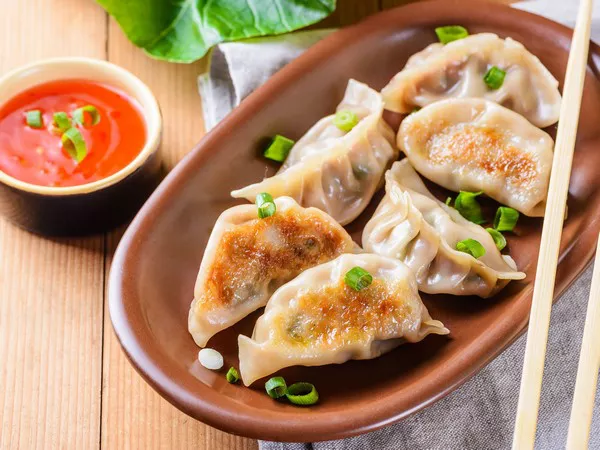Dumplings, a popular and beloved food in various cultures, come in different shapes, sizes, and fillings, making them a versatile and delicious option for many. When it comes to pricing, the cost of dumplings can vary depending on several factors. In this article, we delve into the world of dumplings and explore the various elements that influence their price. From ingredients and preparation methods to the location and type of establishment, understanding the factors affecting the cost of dumplings can provide insights into their pricing range and help you make informed decisions when indulging in these delectable treats.
Types of Dumplings
a. Traditional Dumplings: Traditional dumplings, such as Chinese jiaozi or Japanese gyoza, are often made by hand and require intricate folding techniques. These labor-intensive dumplings may be priced higher due to the skill and time involved in their preparation.
b. Regional Varieties: Different regions have their own unique dumpling specialties, such as Polish pierogi or Nepalese momo. The cost of these regional dumplings may vary based on their popularity, availability of ingredients, and cultural significance.
c. Gourmet or Specialty Dumplings: Gourmet dumplings, which feature premium ingredients or innovative flavor combinations, may be priced higher due to the quality and exclusivity they offer. These dumplings often cater to specific dietary preferences or showcase culinary creativity.
Ingredients Used
a. Protein Choices: The type of protein used in the dumpling filling can impact the cost. Dumplings made with premium ingredients like shrimp, crab, or high-quality meat cuts may be more expensive than those using more affordable options like chicken or pork.
b. Vegetable Fillings: Dumplings that incorporate a variety of fresh vegetables, such as mushrooms, spinach, or truffles, may be priced higher due to the quality and sourcing of these ingredients.
c. Specialty Ingredients: Dumplings that feature unique or exotic ingredients, such as caviar, truffle oil, or specialty cheeses, will typically have a higher price tag due to the cost of these luxurious additions.
Preparation Methods
a. Handmade vs. Machine-Made: Dumplings that are handmade, requiring skilled labor and precision in shaping and folding, may be more expensive than those made using automated machines. Handmade dumplings often have a distinct texture and appearance, adding to their allure.
b. Labor Intensity: Dumplings that require additional steps, such as marinating or multiple cooking techniques, may be priced higher due to the increased labor and time involved in their preparation.
c. Frozen vs. Fresh: Freshly made dumplings tend to command a higher price due to the additional effort and ingredients required for immediate consumption. Frozen dumplings, on the other hand, offer convenience and a longer shelf life, making them a more affordable option.
Location and Establishment Type
a. Local Street Food Stalls: Dumplings from local street food stalls or food carts often offer budget-friendly options, catering to a wide range of customers. These establishments tend to focus on traditional flavors and quick service.
b. Casual Dining Restaurants: Casual dining restaurants that specialize in dumplings may offer a range of options at varying price points. These establishments typically provide a comfortable dining experience with a wider selection of fillings and flavors.
c. Fine Dining or Michelin-Starred Restaurants: Dumplings served in high-end or Michelin-starred restaurants often come with a higher price tag due to the quality of ingredients, culinary expertise, and elevated dining experience they offer.
Local Market Factors
a. Cost of Living: The overall cost of living in a specific region or city can influence the pricing of dumplings. Higher living costs can result in higher prices for ingredients, rent, and labor, impacting the final price of the dumplings.
b. Availability of Ingredients: The availability and sourcing of specific ingredients in a particular area can affect the cost of dumplings. Limited availability or imported ingredients may increase the overall price.
c. Competition and Demand: The level of competition and demand for dumplings in a local market can influence pricing. Higher demand or a lack of competition may lead to higher prices, while more options and competitive pricing can provide affordable choices.
Portion Size and Serving Style
a. Dumpling Size: The size of the dumplings can affect their pricing. Larger dumplings may require more ingredients and labor, resulting in a higher price per piece.
b. Serving Style: Dumplings served as part of a larger meal or a dumpling buffet may offer more value for money compared to individually priced dumplings. All-you-can-eat options or combination platters can provide a more cost-effective way to enjoy a variety of dumplings.
c. Side Dishes and Accompaniments: The inclusion of side dishes, sauces, or complementary items like soup or rice can influence the overall price of a dumpling meal.
Conclusion
The cost of dumplings can vary depending on several factors, including the type of dumpling, ingredients used, preparation methods, location, establishment type, local market factors, portion size, and serving style. Understanding these factors allows consumers to make informed choices based on their preferences, budget, and the overall dining experience they seek. Whether indulging in traditional handmade dumplings or exploring gourmet varieties, the pricing of dumplings reflects the craftsmanship, quality of ingredients, and unique culinary offerings they provide. By appreciating the intricacies of these factors, individuals can enjoy the delightful world of dumplings while making choices that align with their tastes and budget.

